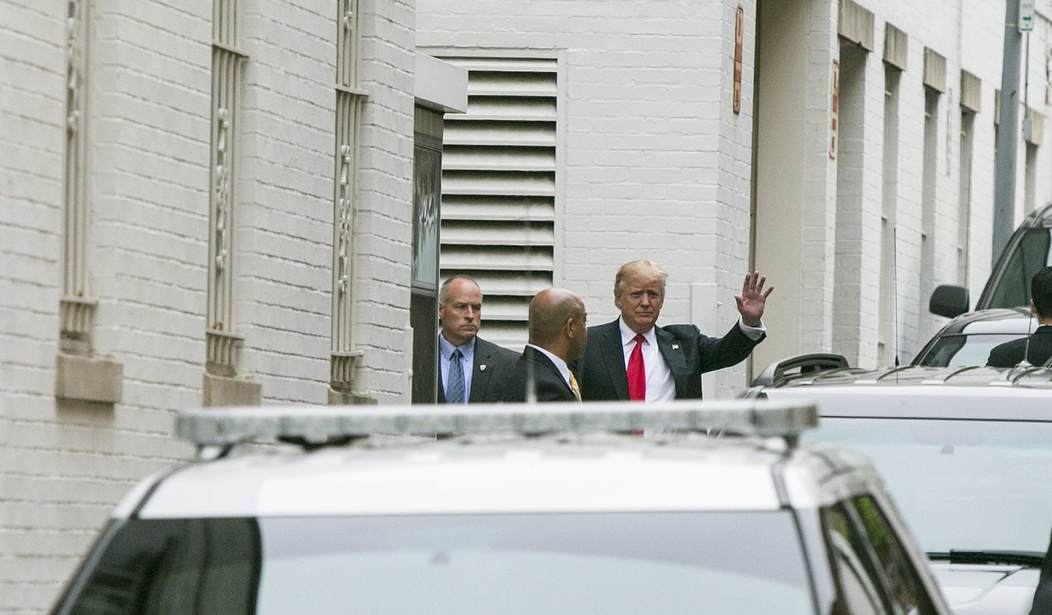Russian hackers tried to breach the computer networks of the Republican National Committee but failed to get past their security defenses, the Wall Street Journal reported Thursday evening. According to U.S. officials briefed on the intrusion, the hackers used the same techniques that allowed them to successfully infiltrate the Democratic National Committee, suggesting that they had intended to compromise Republicans, too. People close to the investigation said that only one email account linked to a long-departed RNC staffer was targeted, indicating a less aggressive effort, however.
The disclosures came as a political furor grows over suspected Russian hacking of U.S. political organizations. The Central Intelligence Agency has concluded that Russian hackers, whom analysts say work for that country’s military and intelligence apparatus, stole emails from the DNC, as well as another Democratic organization and the chairman of Hillary Clinton’s presidential campaign, to harm her candidacy and boost Republican Donald Trump’s chances of winning. Russia has denied the allegations.
The possibility that Russians tried and failed to infiltrate the RNC doesn’t necessarily conflict with the CIA’s conclusion. A senior U.S. official said analysts now believe what started as an information-gathering campaign aimed at both parties later took on a focus of leaked emails about Mrs. Clinton and Democrats.
This news contradicts what the the New York Times reported last week — namely, that senior administration officials had concluded with “high confidence” that the RNC systems had been penetrated by the Russians but they didn’t release any of their information because they only wanted to burn Hillary Clinton.
President Barack Obama said in an NPR interview Thursday that the U.S. is considering retaliatory moves against Russia. “I think there is no doubt that when any foreign government tries to impact the integrity of our elections, that we need to take action, and we will,” he said. “At a time and a place of our own choosing. Some of it may be explicit and publicized; some of it may not be.”
The WSJ continues:
Until now, few details had been disclosed about the nature of the targeting of Republican organizations, especially the flagship Republican National Committee, where hackers sent so-called phishing emails last spring to an email address there. Those emails were quarantined by a filter meant to detect spam as well as potentially malicious traffic that may carry viruses or trick recipients into divulging passwords, two officials said.
A third person familiar with the investigation said RNC staff members didn’t realize they had been the target of spies until June, after Democratic committee leaders revealed that hackers had successfully gained a foothold inside their networks. Once inside, they reportedly were able to access a trove of DNC opposition research on Mr. Trump, then a candidate.
RNC officials, concerned they too might have been compromised, called a private computer security firm, which in turn called the FBI and obtained information about what kinds of malicious emails to look for, the person said. Upon inspection, the RNC found that its electronic filters had blocked emails sent to a former employee matching the description they’d been warned about.
The apparently successful blocking of a Russian espionage operation offers one possible explanation why the GOP’s main political organization didn’t suffer the same fate as its Democratic counterpart—a deluge of leaked emails revealing private correspondence and internal strategy.
But the suspicion that Russians did try to break into the RNC, using the same techniques and tactics that worked so well on the Democrats, suggests that at least initially, they were trying to gather potentially incriminating or embarrassing information on both parties.
The same hackers who reportedly penetrated the DNC also managed to steal some emails from some Republican state-level officials. Those emails were published on the DCLeaks website, which cyber security experts say is linked to the Russian operation that allegedly targeted the DNC and Clinton Chief of Staff John Podesta.
The leaked GOP emails received scant public attention because they consisted of mostly mundane and innocuous correspondence, such as inquiries and complaints sent by constituents to generic addresses.
The Democrat emails were a different story. Those leaked emails revealed how Democrat staffers were working behind the scenes to undermine Mrs. Clinton’s primary rival, Vermont Sen. Bernie Sanders. Emails also exposed how members of the media eagerly colluded with the Clinton campaign. Still others raised red flags about Clinton, as secretary of state, engaging in pay-to-play schemes for foreign donations to the Clinton Foundation.
Sen. Lindsey Graham (R-SC) told CNN Wednesday that his campaign email system was also hacked by the Russians.
Mr. Graham plans to hold hearings about the hacks, which all U.S. intelligence agencies said in a rare public statement in October were directed by the highest-levels of the Russian government to interfere with U.S. elections.
An independent security expert said that it was plausible that the RNC’s security systems stopped any potentially dangerous emails from reaching their targets.
But the fact that they failed doesn’t mean they preferred one candidate over another, nor that they don’t harbor plans to leak embarrassing information about Republicans or Mr. Trump in the future, now that he’s about to assume the presidency.
“It would be naive [for Republicans] to think they weren’t targeted,” said Michael Buratowski, a senior vice president at Fidelis Cybersecurity. “It doesn’t surprise me at all that they were gone after,” Mr. Buratowski said, “because the hackers in question have demonstrated over many years a voracious appetite for information. The two groups have been linked to earlier incursions at U.S. government agencies, including the State Department and the White House.”
WikiLeaks founder Julian Assange continued Thursday to insist that the DNC and Podesta emails published on his website did not come from the Russian government.
Assange said the allegations are part of a “foolish” and “dangerous” effort by Democrats to overturn the election.
‘Our source is not the Russian government,’ Assange told Sean Hannity on his radio show on Thursday, in his first U.S. interview since the election. ‘We have U.S. intelligence saying that say they know how we got our stuff and when we got it, and us saying we didn’t get it from a state.’
Assange said his group has a strict policy against commenting on its sources, but he wanted to dispute allegations that Wikileaks was involved in a Russian-orchestrated campaign to swing the election for Donald Trump.









Join the conversation as a VIP Member